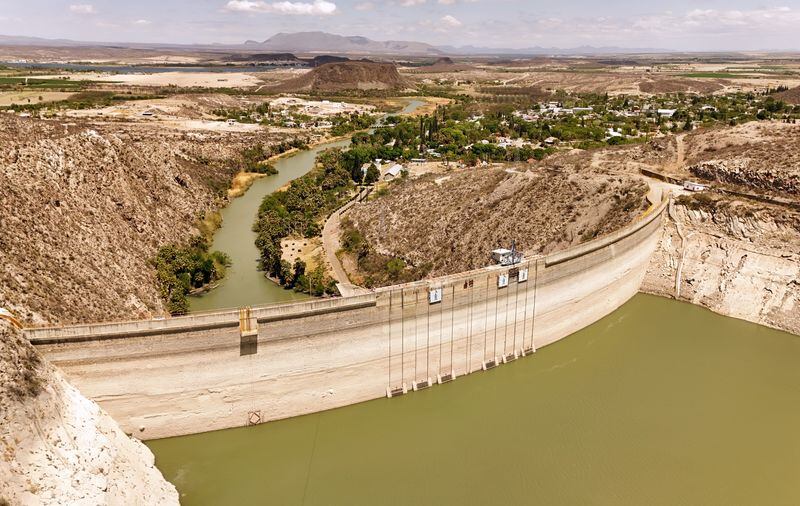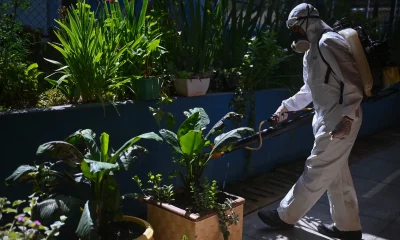International
Feminicidal violence persists in Latin America: More awareness, more cries, but few answers

November 29 |
Despite advances in social awareness, legislation and statistics, feminicidal violence continues to plague the Latin American region, according to the latest report of the Economic Commission for Latin America and the Caribbean (ECLAC). In 26 countries and territories, a woman is murdered for gender-related reasons every two hours, revealing a stark reality that seems to refuse to let up.
Figures provided by the States indicate that in 2022 there were 4,050 victims of femicides in Latin America. However, feminist collectives argue that the magnitude of this tragedy exceeds what the official data show, underscoring the need to address the problem in a more comprehensive and effective manner.
The ECLAC report stresses that these femicides are “the extreme expression of inequality, discrimination and multiple forms of violence against women and girls”. Faced with this bleak picture, voices of protest were raised in various demonstrations that took place on the occasion of the International Day for the Elimination of Violence against Women, last Saturday.
From the beaches of Rio de Janeiro to Mexico City, women raised their voices demanding a stop to violence. In the Mexican capital, the Zócalo became a symbolic “cemetery”, with pink cardboards representing tombstones, remembering the victims of femicide and crying out for justice in a silent but forceful manner.
Another significant event took place at the central campus of the National Autonomous University of Mexico, where violet silhouettes of women were painted with messages and photographs in memory of the absent women, in anticipation of the marches planned for that day.
ECLAC warns about the prevalence of gender-based violence in the region, noting that around two thirds of women are victims of gender-based violence. Also, one in three women has experienced physical and/or sexual aggression by a partner or ex-partner, raising the risk of lethal violence, according to the World Health Organization.
The report highlights that the threat affects 88 million women over the age of 15 in Latin America and the Caribbean, underscoring the normalization and invisibility of violence against women over the age of 65.
Alarmingly, 4% of the victims are girls under the age of 15, with documented cases of child marriages and unions in 1 in 5 girls. More than 400 minors lost their mothers or caregivers due to femicides in 2022.
José Manuel Salazar-Xirinachs, Executive Secretary of ECLAC, emphasized the need for comprehensive and forceful state responses to prevent feminicidal violence, while stressing the urgency of profound transformations to guarantee violence-free lives for women and girls in the region. The report also points out the responsibility of States in private acts if they do not adopt measures to prevent and punish murders and assaults against women, as established by the Committee on the Elimination of Discrimination against Women in 2010. However, the contrast is evident: only three out of 19 countries report data on reports of violence, and in seven countries there are regulations to care for and compensate the children of women victims of femicide. The gap between reality and state response persists, unleashing more cries for justice in a region struggling to put an end to gender-based violence.
International
U.S. and Mexico Reach Deal to Address Water Deficit Under 1944 Treaty

The United States and Mexico have reached an agreement to comply with current water obligations affecting U.S. farmers and ranchers and for Mexico to cover its water deficit to Texas under the 1944 Water Treaty, the U.S. Department of Agriculture said in a statement.
The department уточified that the agreement applies to both the current cycle and the water deficit from the previous cycle.
On Monday, U.S. President Donald Trump accused Mexico of failing to comply with the water-sharing treaty between the two countries, which requires the United States to deliver 1.85 billion cubic meters of water from the Colorado River, while Mexico must supply 432 million cubic meters from the Rio Grande.
Mexico is behind on its commitments. According to Washington, the country has accumulated a deficit of more than one billion cubic meters of water over the past five years.
“This violation is severely harming our beautiful crops and our livestock in Texas,” Trump wrote on Monday.
The Department of Agriculture said on Friday that Mexico had agreed to supply 250 million cubic meters of water starting next week and to work toward closing the shortfall.
Agriculture Secretary Brooke Rollins, quoted in the statement, said Mexico delivered more water in a single year than it had over the previous four years combined.
Trump has said that if Mexico continues to fall short of its obligations, the United States reserves the right to impose 5% tariffs on imported Mexican products.
Mexico’s Deputy Foreign Minister for North America, Roberto Velasco, said that a severe drought in 2022 and 2023prevented the country from meeting its commitments.
International
Several people shot in attack on Brown University campus

Several people were shot on Saturday in an attack on the campus of Brown University, in the northeastern United States, local police reported.
“Shelter in place and avoid the area until further notice,” the Providence Police Department urged in a post on X. Brown University is located in Providence, the capital of the state of Rhode Island.
U.S. President Donald Trump said on his social media platform Truth Social that he had been briefed on the situation and that the FBI was on the scene.
At 5:52 p.m. local time (11:52 p.m. GMT), Brown University said the situation was still “ongoing” and instructed students to remain sheltered until further notice.
After initially stating that the suspect had been taken into custody, Trump later posted a second message clarifying that local police had walked back that information. “The suspect has NOT been apprehended,” the U.S. president said.
International
Colombia says it would not reject Maduro asylum request as regional tensions escalate

The Colombian government stated on Thursday that it would have no reason to reject a potential asylum request from Venezuelan President Nicolás Maduro should he leave office, as regional tensions persist over the deployment of U.S. military forces in the Caribbean since August.
“In the current climate of tension, negotiations are necessary, and if the United States demands a transition or political change, that is something to be assessed. If such a transition results in him (Maduro) needing to live elsewhere or seek protection, Colombia would have no reason to deny it,” said Colombian Foreign Minister Rosa Villavicencio in an interview with Caracol Radio.
However, Villavicencio noted that it is unlikely Maduro would choose Colombia as a refuge. “I believe he would opt for someplace more distant and calmer,” she added.
Colombian President Gustavo Petro also commented on Venezuela’s situation on Wednesday, arguing that the country needs a “democratic revolution” rather than “inefficient repression.” His remarks followed the recent detention and passport cancellation of Cardinal Baltazar Porras at the Caracas airport.
“The Maduro government must understand that responding to external aggression requires more than military preparations; it requires a democratic revolution. A country is defended with more democracy, not more inefficient repression,” Petro wrote on X (formerly Twitter), in a rare public criticism of the Venezuelan leader.
Petro also called for a general amnesty for political opponents and reiterated his call for forming a broad transitional government to address Venezuela’s prolonged crisis.
Since September, U.S. military forces have destroyed more than 20 vessels allegedly carrying drugs in Caribbean and Pacific waters near Venezuela and Colombia, resulting in over 80 deaths.
U.S. President Donald Trump has repeatedly warned that attacks “inside Venezuela” will begin “soon,” while Maduro has urged Venezuelans to prepare for what he describes as an impending external aggression.
-

 International4 days ago
International4 days agoWashington declares State of Emergency as atmospheric river brings severe flooding
-

 International4 days ago
International4 days agoU.S. to require five-year social media history from tourists under Visa Waiver Program
-

 International3 days ago
International3 days agoCuba battles out-of-control dengue and chikungunya epidemic as death toll rises to 44
-

 Central America3 days ago
Central America3 days agoHonduras election crisis deepens as CNE president denounces intimidation attempts
-

 Central America4 days ago
Central America4 days agoOAS and EU urge honduran political actors to respect vote results and avoid unrest
-

 International3 days ago
International3 days agoColombia says it would not reject Maduro asylum request as regional tensions escalate
-

 International2 days ago
International2 days agoSeveral people shot in attack on Brown University campus
-

 International3 days ago
International3 days agoEcuador on track for record violence as homicides hit highest level in Latin America again
-

 International4 days ago
International4 days agoSix ecuadorian soldiers jailed pending trial for alleged extrajudicial execution
-

 International2 days ago
International2 days agoU.S. and Mexico Reach Deal to Address Water Deficit Under 1944 Treaty
-

 Central America12 hours ago
Central America12 hours agoPanama seizes over three tons of drugs hidden in Caribbean port container
-

 Central America2 minutes ago
Central America2 minutes agoOAS urges swift recount in Honduras as election results remain uncertain




























